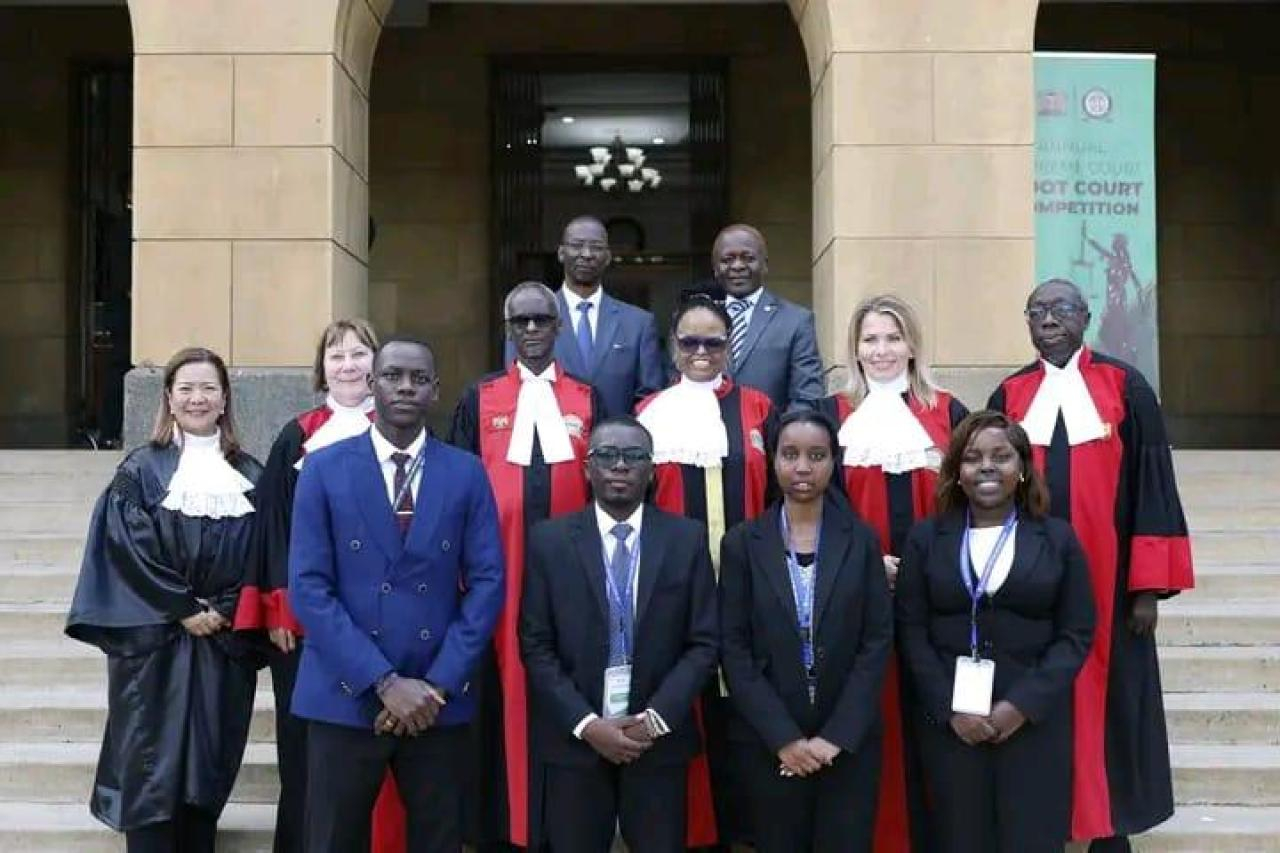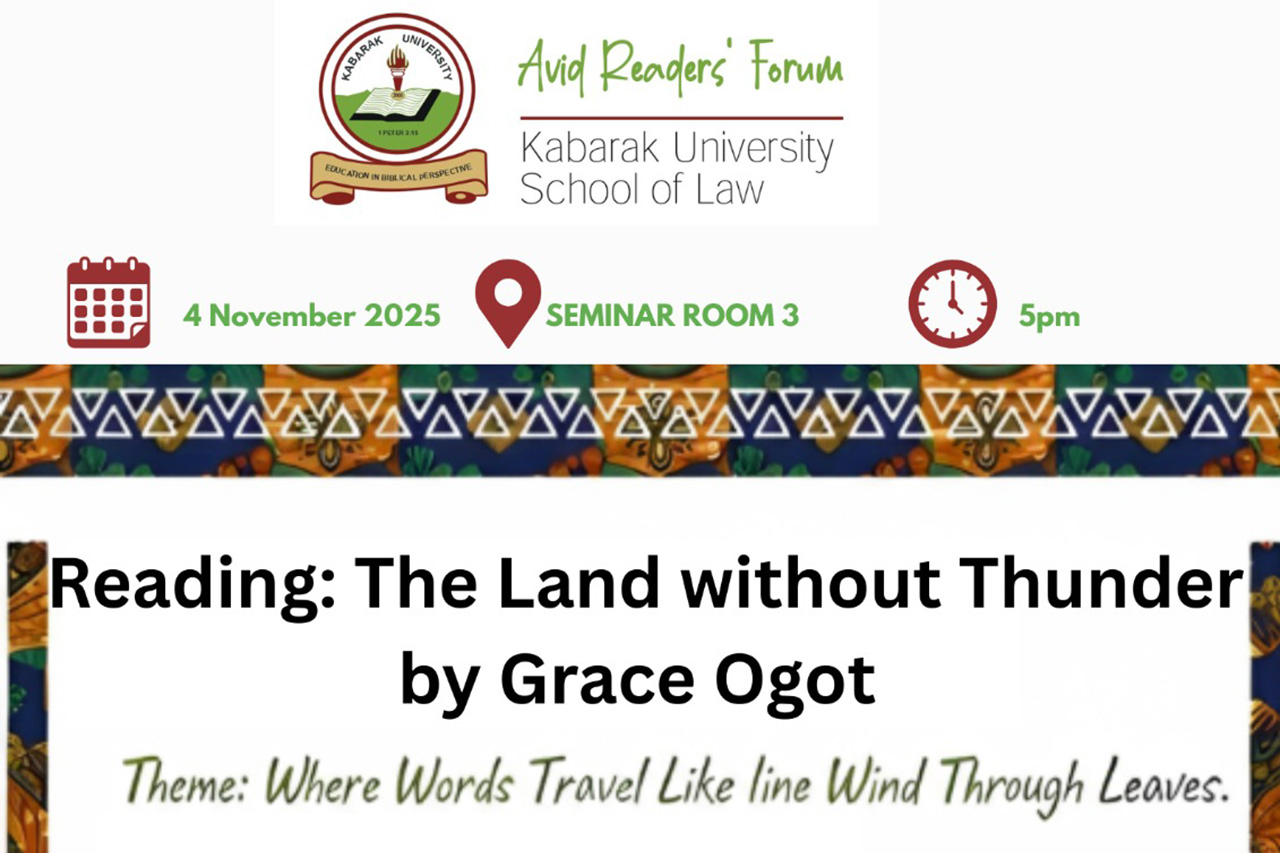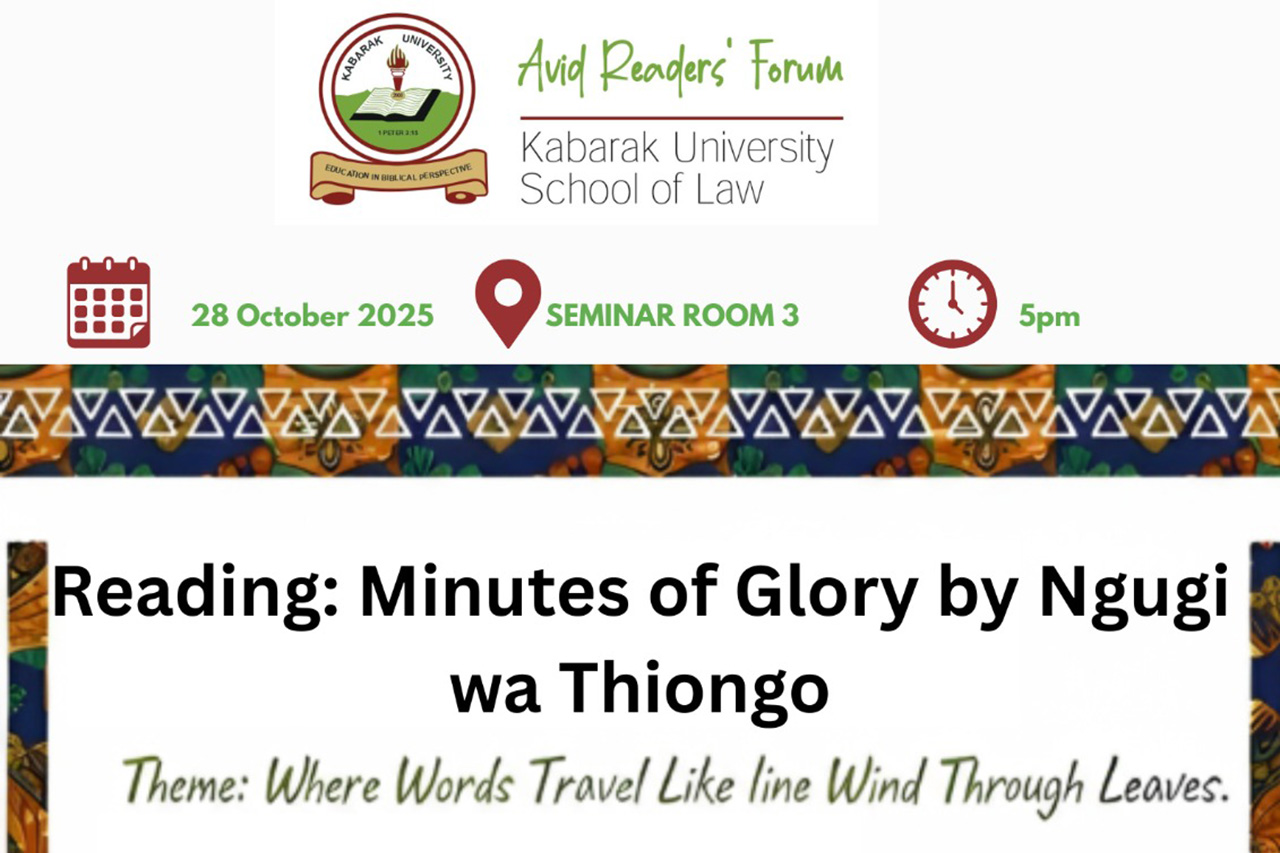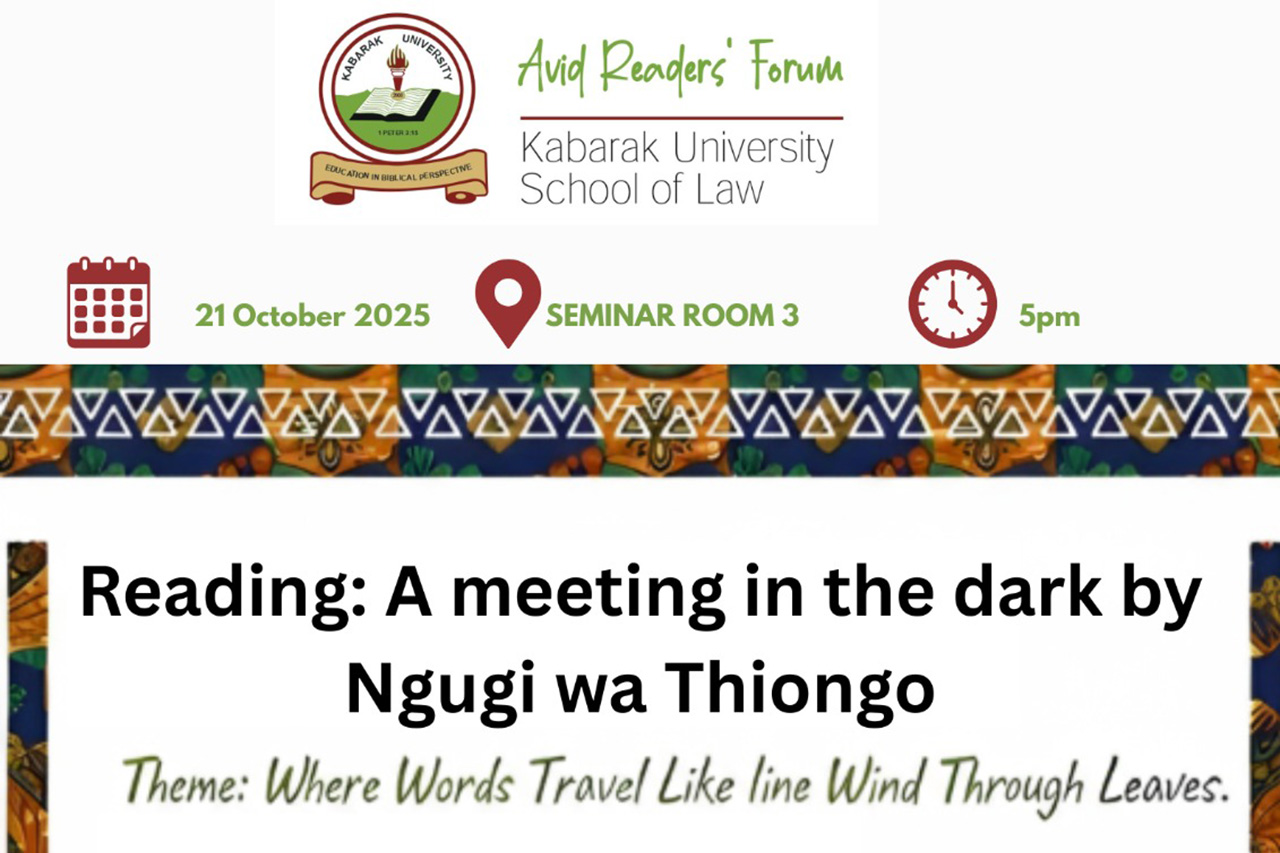Kabarak University continues to make remarkable strides in legal advocacy, proudly demonstrating its excellence on the national stage at the prestigious Supreme Court Moot Court Competition held from 12th to 14th November 2025.
Our Moral Code
As members of Kabarak University family, we purpose at all times and in all places, to set apart in one s heart, Jesus as Lord. (1 Peter 3:15)
E-Resources
Student Affairs
Quick Links
Public info

Located 20 Kilometres (12mi) from Nakuru City CBD, along the Nakuru Eldama Ravine road.
P.o private bag 20157, Kabarak.
Admissions Inquiry: admissions@kabarak.ac.ke
General Inquiry: info@kabarak.ac.ke
ICT HelpDesk: icthelpdesk@kabarak.ac.ke
Accomodation: accommodation@kabarak.ac.ke
General Inquiry: 0729223370
Admissions: 0202114658
Student Finance: 254705184373
Accommodation: 254773552932
Emergency Hotline: 0110009277






